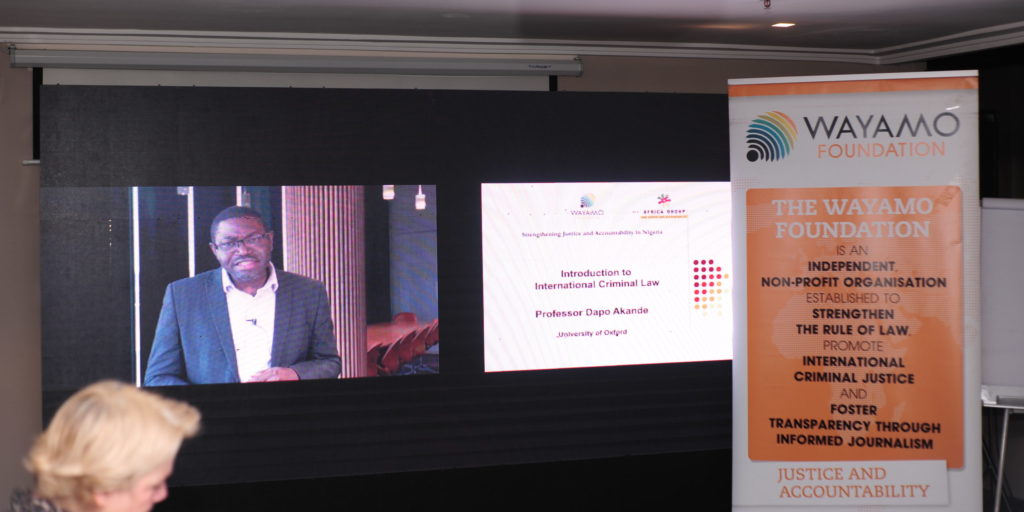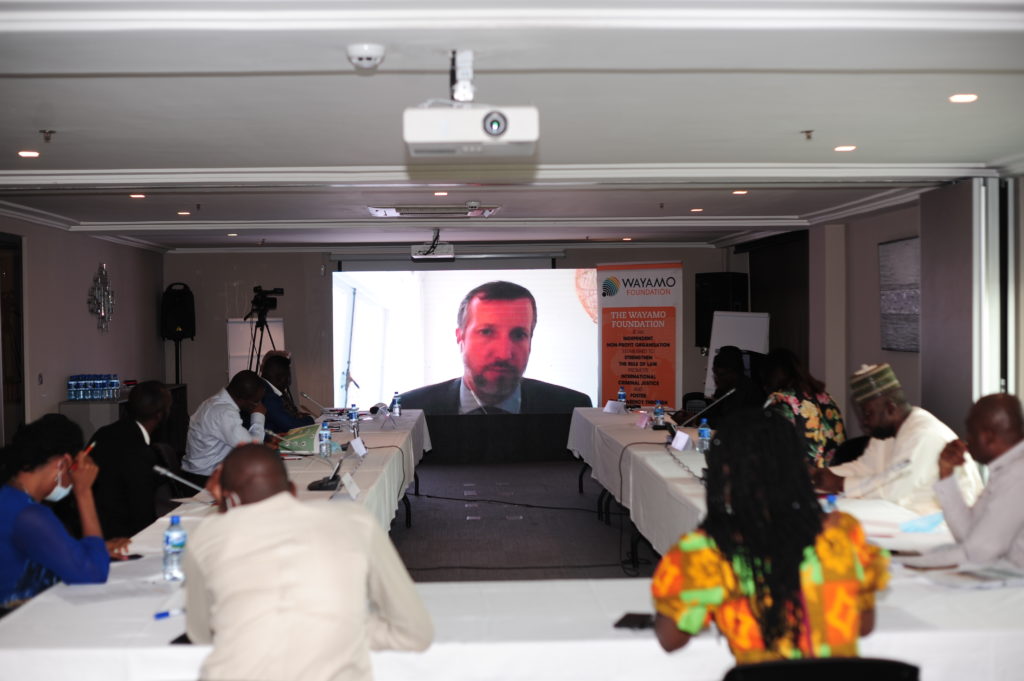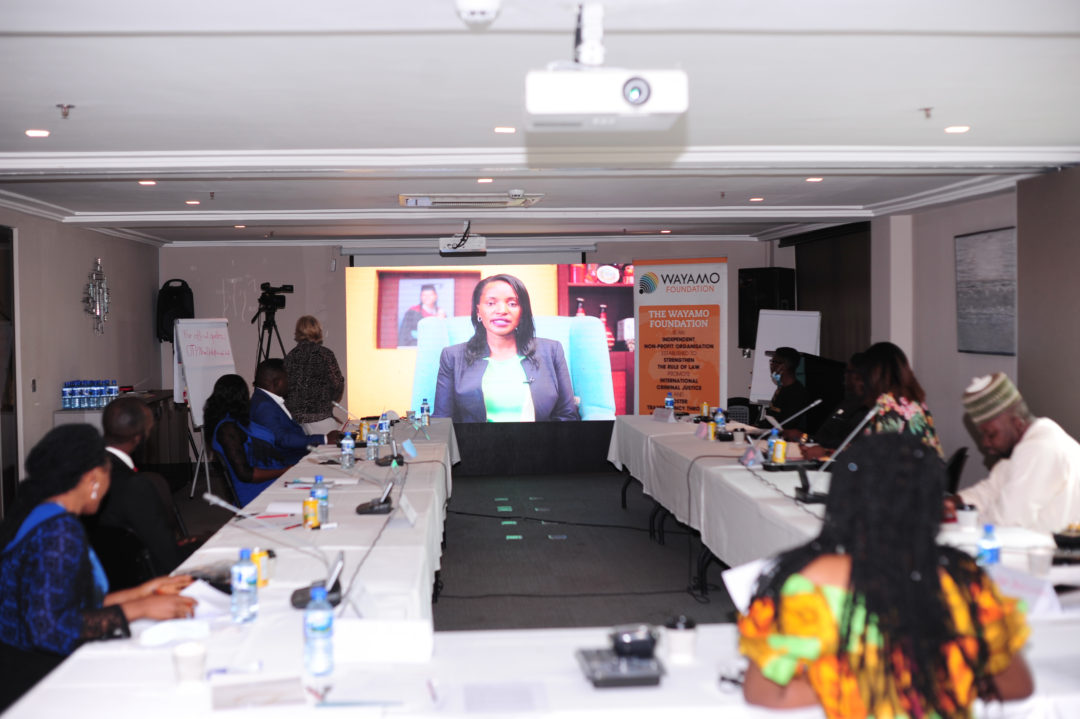On 9 February, Wayamo hosted its second media engagement for journalists who work on issues pertaining to international criminal justice and accountability. The event followed a hybrid model, with journalists attending from Abuja, Nigeria, and the majority of the experts joining participants via Zoom.
The objective of these meetings is to strengthen reporting skills and build knowledge on critical justice-related issues affecting the region, ranging from the role of the International Criminal Court (ICC) in Nigeria to security challenges and the domestic prosecution of alleged Boko Haram members.
The ultimate goal is to raise awareness about the continued importance, not only of accountability for core international crimes on all sides, but also of responsible, knowledgeable and accurate journalism.
The meeting was personally attended by a number of journalists affiliated to different Nigerian media houses, including Voice of Nigeria, Nigerian Television Authority, Daily Trust, News Agency of Nigeria, and Premium Times. The number of attendees was limited to ensure observance of social distancing regulations.

Dapo Akande, Professor of Public International Law, University of Oxford, gave an ‘Introduction to international criminal law’
The event was officially opened by Wayamo Director, Bettina Ambach. Her opening remarks were followed by two pre-recorded lectures: Dapo Akande, Professor of Public International Law, University of Oxford, gave an ‘Introduction to international criminal law’, which -as the evaluations subsequently revealed- was perceived as being incredibly useful by the journalists, in terms of providing them with a comprehensive overview of the most important legal foundations needed to address issues pertaining to international criminal law; and Claus Molitor, Situation Analyst, Office of the Prosecutor, ICC, gave an overview of the current state of affairs between Nigeria and the ICC.

Claus Molitor, Situation Analyst, Office of the Prosecutor, ICC, gave an overview of the current state of affairs between Nigeria and the ICC
After a short tea break, Philipp Ambach, Chief, Victims Participation and Reparations Section, ICC, joined the participants for a live Zoom Q&A session, which served as a useful opportunity for both sides to discuss the ICC’s approach to victim participation, and to raise many of the international criminal law issues that had surfaced during the day. The last session consisted of a pre-recorded lecture by Judie Kaberia, Wayamo Coordinator for East Africa, on the media’s response to the ICC cases in Kenya (2010- 2016), followed by a live Zoom Q&A hosted by Judie Kaberia and Kris Kotarski, Wayamo’s Digital Programmes Manager.
Bettina Ambach brought the day’s proceedings to an end with a critical analysis of recent Nigerian newspaper articles on the ICC and some brief closing remarks.
The event was very positively received, with participants describing it as ‘extremely enlightening’, ‘revealing’, ‘inspirational’, ‘helpful, educating and enriching’. The meeting, it seems, helped clarify some important points regarding the relationship between the ICC and Nigeria. As one participant wrote, ‘I understand that Nigeria’s cases at the ICC are at the interim phase and what it implies for the future of Nigeria’. Similarly, another participant said, ‘I understood that the ICC’s decision to open an official investigation against Boko Haram and the Nigerian military is still reliant on certain approvals within The Hague to proceed further up the prosecutorial ladder.’ A second message that Wayamo hoped journalists would take home was aptly summarised by the comment that ‘the event emphasised cooperation among reporters; which is hard to come by in a fast-paced media era of competition and editorial bias and differences’. The only shortcoming was apparently the lack of time to address all the topics in which the journalists were interested. In future, participants said that they wished to see additional topics addressed, such as ‘a session with other parties apart from journalists’, ‘the military and judiciary sharing their side of the story regarding criminal cases’, and ‘gender-based violence and crimes’.


